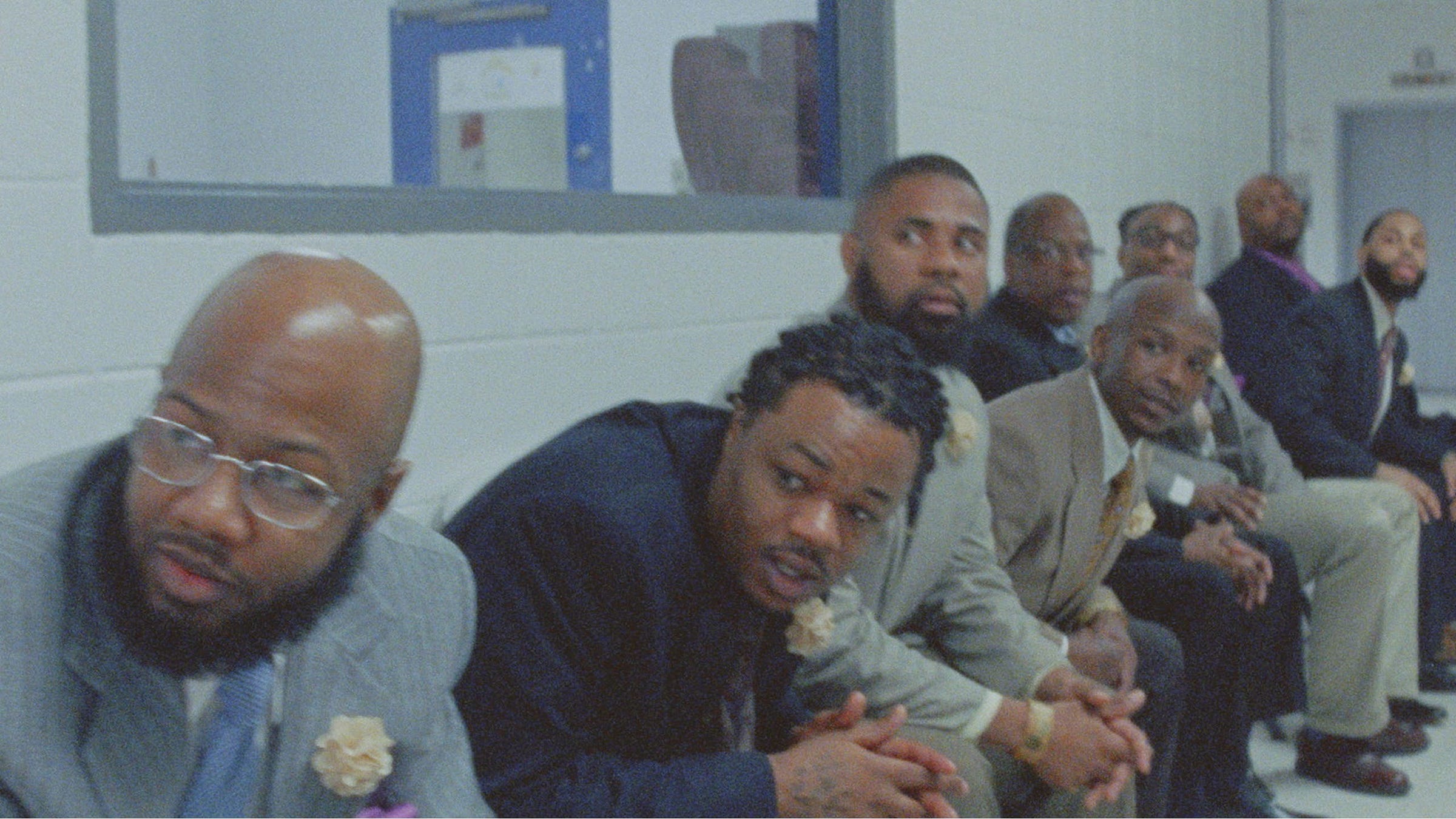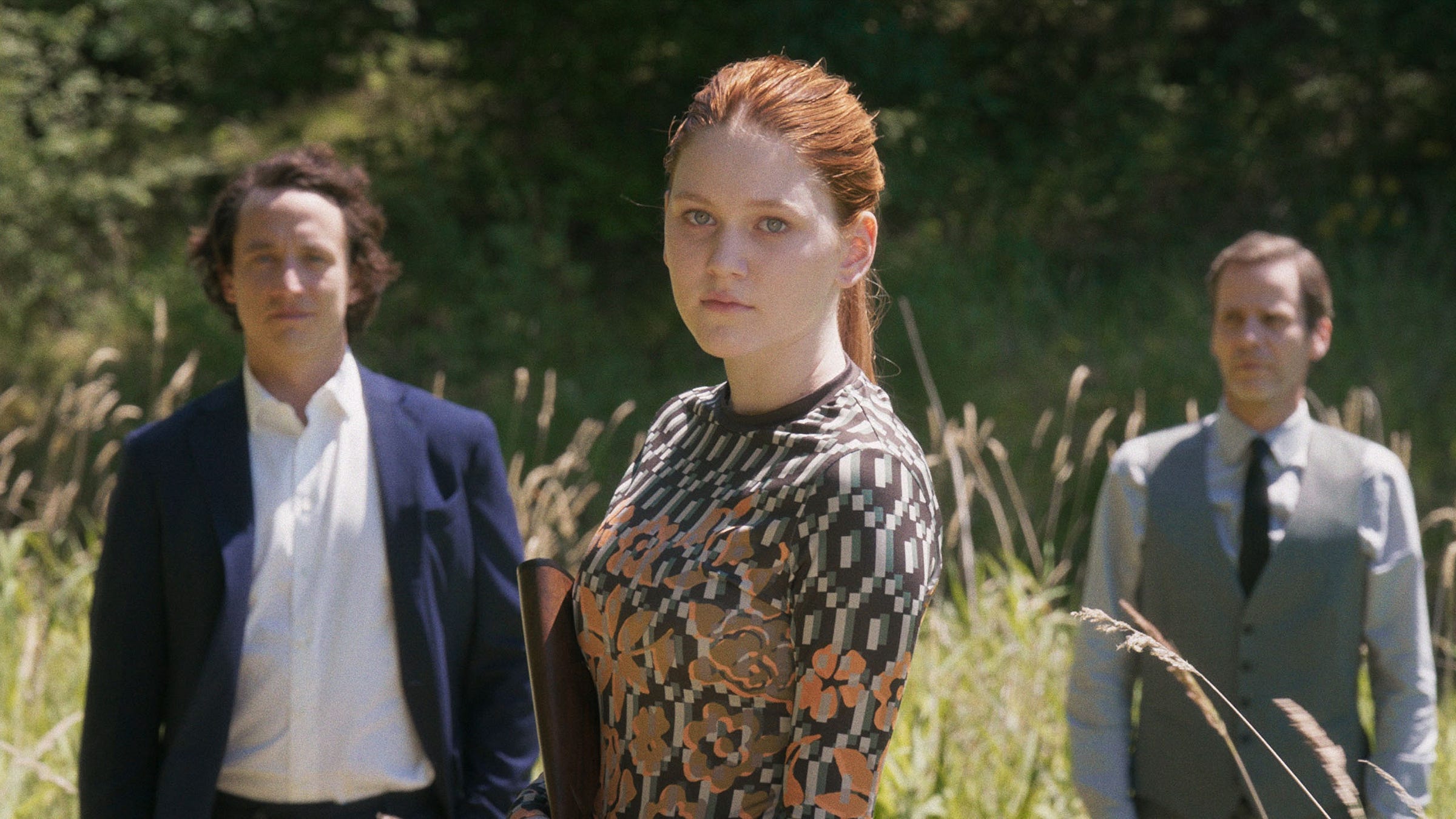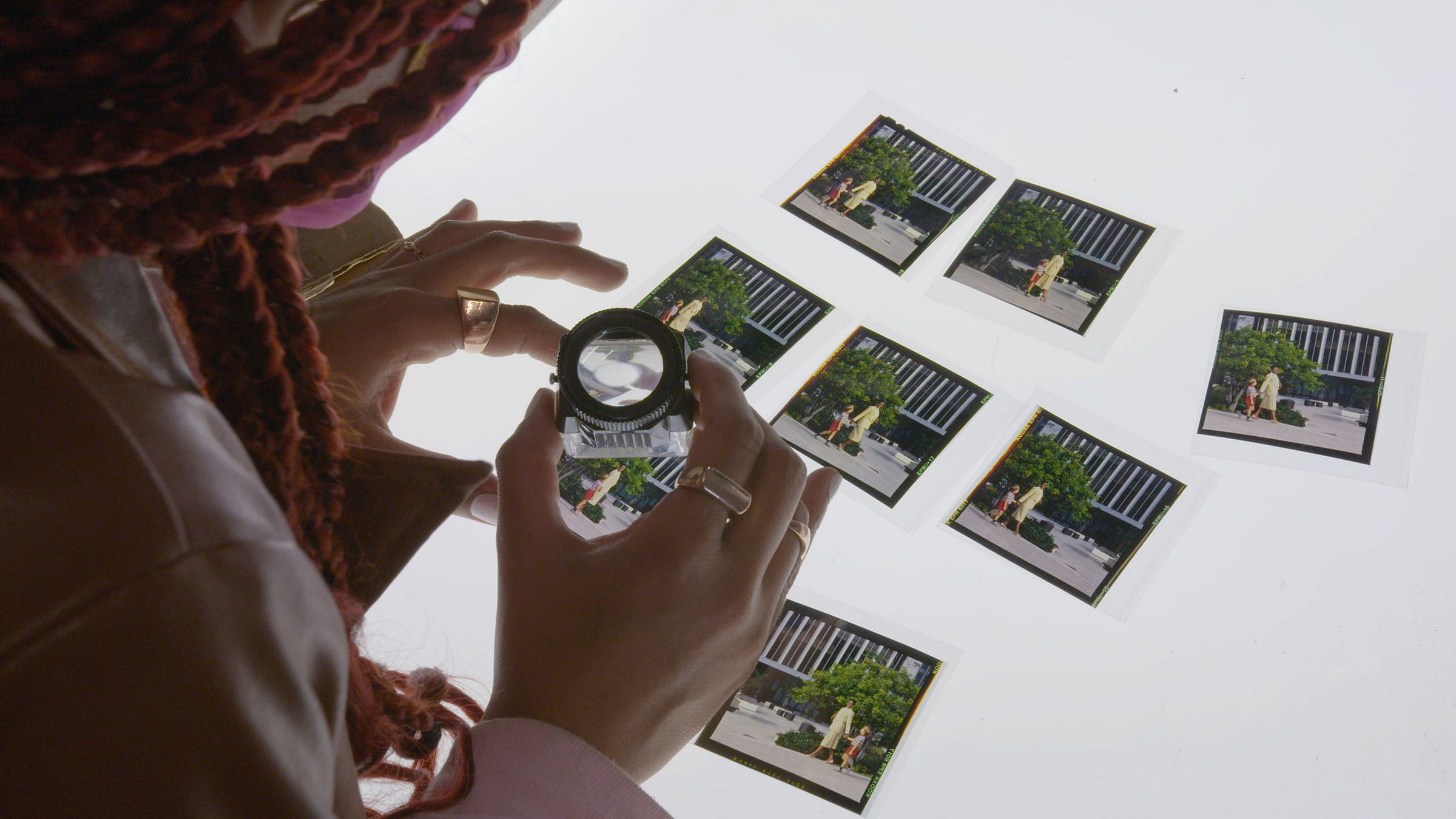Quick heads up that this issue is extra long and will likely be truncated by your email client. For the best experience, read it in your browser!
And bringing up the rear, it’s Cate with more films from this year’s festival. As always, there’s a dud or two in the mix. But these films largely stood out as moving portraits of the lives of ordinary people. As the great Roger Ebert once said, film is a “machine that generates empathy.” And we need a lot more of that in the world right now. So go ahead. Read and enjoy!
What Cate Watched
Daughters
directed by: Angela Patton and Natalie Rae
“Cardi B has a twin sister who works out a lot. Her name is Cardi O.”
It's hard to argue for the cultural merit of a corny dad joke. But in the deeply moving new documentary from directors Angela Patton and Natalie Rae, dad jokes are nothing short of a mark of triumph.
Centered on a Daddy-Daughter Dance initiative for young black girls with fathers in prison, Daughters gets up close and personal with a group of incarcerated black men. Spearheaded by Patton, the program requires the men to complete 10 weeks of group counseling with a moderator, culminating in a small prom in the prison’s gymnasium.
Daughters is equal parts heartbreaking and full of hope. The men in the program find that with the guidance of the program director, they finally have a safe place to talk about and process their feelings. Prompted by their fellow inmates and encouraged by their assent, they open up about the circumstances that led to their incarceration. They tell stories of their own absent fathers and the wishes they had for their daughters.
Back on the outside, the daughters themselves are painfully aware of their father’s absence. They’re burdened by the longing they feel for the parent they have limited or no access to — usually due to the limitations of the prisons themselves. Whether it’s the elimination of “touch visits” at the prison, or the imminent threat of being transferred to facilities outside the reach of their families, the separation affects not just the men who long for comfort and home, but the families they’ve left behind. People rarely talk about incarceration through the lens of family separation, but Daughters make it frighteningly clear that that’s exactly what it is.
Through the prism of these young girls, the film explores the dehumanizing reality of the American prison system. These men are isolated from everything they know, unable to maintain the kind of support that would prevent them from lapsing into the lives that got them sentenced to prison in the first place. Even the phone calls cost money, and they’re billed at exorbitant rates that many families cannot afford. The prison system makes it nearly impossible to maintain family ties. A few of the men lament that they’ve never even held their daughters — born after the fact of their incarceration. They worry that their little girls will not recognize them.
But Daughters intentionally makes time to carve out and display the deep benefits of programs like this. As stark as the realities of these men’s lives are, it’s equally thrilling to see grown men nervous about the opportunity to feel like a person again instead of just s number — even if just for a little while. They worry about finding suits that fit (provided by the program), how to tie a tie, and whether or not they can actually dance! The broad looks of love on their faces, as they see, hug, and touch their children for the first time in years, are enough to make even the biggest cynic melt.
It feels like a punch to the gut to watch these men and their daughters openly sob as they sway to Beyoncé’s rendition of “Before I Let Go,” desperate for a few more minutes together as the night comes to an end. A year later, not everyone in the film has a happy ending — some men are transferred away from their families, while others struggle to maintain strong ties with daughters who are growing older. But the enduring benefits of the program are deeply felt and plain to see. Shepherded by Kerry Washington and Joel Edgerton as executive producers, Daughters uncovers so much of the residual damage of the prison system that it’s impossible to come away from it and not lament the level of dehumanization that has been allowed to fester. It’s time to radically rethink crime and punishment.
Veni Vidi Vici
directed by: Daniel Hoesl and Julia Niemann | written by: Daniel Hoesl
It's always a disappointment when a film doesn't stick the landing. A clever premise cleanly executed is all one needs for a good solid onscreen romp. But Veno Vidi Vici doesn’t deliver.
A presumptive class satire about the corruption of wealth, the film attempts to make a simple point: we all bend the knee to wealth. The problem is that… it’s not a particularly new insight in a capitalist society. In the film, The Maynards are a family of guileless, leisure-class billionaires who terrorize their town. The film’s patriarch Amon (Laurence Rupp) is a serial killer who hunts people with a crossbow for sport. The exercise is highly choreographed, with every aspect timed and organized for easy repeatability — think, a seemingly endless supply of unobtrusive white cars.
This fact is not a secret. And in fact, the entire town, including its elected leaders and the police, speaks in hushed tones about the crimes whenever a new body turns up. But the Maynards are also casual benefactors to galleries and political campaigns. His murderous delight is treated as a cost of doing business. And that is the point. As Amon casually details with near-sociopathic ease, no one will stop them. Amon is revealed to be the killer almost immediately, but it doesn’t matter. As long as they maintain the pretense of propriety, they’ve effectively bought themselves the right to break the social contract.
There are clever bits to the film. An early scene reveals that the family’s butler used to be a journalist. Later, as a different journalist gathers insurmountable evidence of the Maynards’ crimes, he is stymied at every turn. No newspaper will run the story. The police refuse to investigate. But when he confronts Amon directly, the billionaire effectively dares him to publish. He doesn’t. Instead, Amon’s teenage daughter invites him and the family butler into a closed room full of various weapons. She threatens the journalist, then summarily executes the butler. The journalist has a choice. Would he like a new job? Repeatability is the name of the game after all.
While the film takes things to the extreme for the sake of satire, it doesn’t add much to the conversation. Solid though the performances are, Veni Vidi Vici gives the audience little to hold onto. These people aren’t “monsters.” On the surface, they’re the platonic ideal of respectability and altruistic wealth. But their disregard for other people doesn’t quite clog up the gears of the story the way it should. Sure, all it would take to stop them is for everyone else to decide they won’t let the Maynards get away with it anymore. But the film tries to indict the audience in this pursuit. “You could stop the monsters if you had a backbone and weren’t so greedy for the crumbs they toss aside” it scolds. The problem with that conclusion however, is that as the film shows, the wealthy are never short on ways to fight back.
Exhibiting Forgiveness
written and directed by: Titus Kaphar
Titus Kaphar’s beautiful new film Exhibiting Forgiveness is a quiet meditation. In it, Tarrell (André Holland) a renowned contemporary artist, battles with his personal demons and childhood trauma as he sets out to move his ailing mother across the country and into his family’s home.
Manifesting as violent night terrors, Tarrell is forced to contend with the deep well of anger he carries for his drug-addicted father La’Ron (John Earl Jelks). La’Ron’s recent resurgence blindsides Tarrell. He wants nothing to do with the man who was terrifying and abusive long before he discovered heroin. But as his father gets clean and attempts to reconnect with his son, Tarrell struggles to make peace with his first bully.
La’Ron’s already already made peace with his ex-wife Joyce (Aunjanue Ellis-Taylor). But the abuse he inflicted on her during their marriage is a central trauma for Tarrell — an emotional wound he can’t heal. Repeatedly we see flashbacks to a particularly violent fight between them, in which La’Ron throws Joyce across the room, shattering the mirror. It was the final straw before La’Ron left them for good.
Using Tarrell’s gorgeous, saturated art, the film lovingly explores ways in which he can heal. Super-imposed against the backdrops of his childhood, Tarrell tries to contend with his complicated feelings. He hates his father, and he resents his mother for forgiving him. How could she betray him by taking back the man who terrorized them for so many years? But as his wife Aisha (Andra Day) sagely tells him, “that shit is just gonna follow us back home if you don’t deal with it here.”
And the cast is firing on all cylinders here. Holland’s performance is rage, bluster and grief. Tarrell’s struggle is made viscerally real in his every movement. There’s a vibration that emanates from him and brings his pain dangerously close to the surface. As always Ellis-Taylor brings a regal self-possession to her role, weary and settled all at once. She plays Joyce’s contemplations with the sageness of a saint. Jelks meets and matches his counterpoints, holding court in La’Ron’s best and worst scenes, easily straddling the line of vicious and pitiable. And Day, with less to do, is nothing less than serene as Aisha — also a musician and singer. Her haunting vocal infuse the film with a lightness that bolsters the film’s story.
Lachlan’s Milne’s stunning cinematography lends the film a meditative feel that instructs the audience the sit and ponder. Healing isn’t easy and it doesn’t happen overnight. When Tarrell finally agrees to face his father, he does so on the condition that he is free to probe La’Ron with all his burning questions. What he discovers is an empathy he was adamant did not exist. His violent, abusive father is… a person. A man who made one wrong choice that led him down the path of many, many, many others. Tarrell is surprised to learn that his father has long been following his career. His glove compartment is full of news clippings touting his talent and artistic prowess. His regret and shame, and mixed with pride for the son he failed so miserably.
In the end, Tarrell manages to find and make peace. He forgives, but for himself. He has no interest in maintaining a relationship with La’Ron because the wound will never scab over. But he releases the torment he’s been subjecting himself to, content in the knowledge that he understands where he comes from, and the man who made him. Finally, he can just be still.
Seeking Mavis Beacon
directed by: Jazmin Renée Jones
People often forget that there are black people in the future. It’s a failure of imagination to conceive of a world where Black people exist as more than helpmeets or objects of projection. Through her debut documentary feature, Seeking Mavis Beacon, director Jazmin Renée Jones goes on a deeply personal quest to examine and pull apart that reality. Her goal? Search for and identify the Black woman who served as the face of the popular computer program.
“Mavis Beacon” was invention of the two white men who created the software program “Mavis Beacon Teaches Typing.” A beautiful woman in professional attire, Mavis lent the program and authoritative air of expertise and credibility. But over time, the identity of the woman who lent her face to the men’s creation was lost. Now, she’s been found. And she’s a Haitan woman named Renee L’Esperance who the developers claim to have “discovered” in Saks Fifth Avenue.
With the help of her friend and “digital doula” Olivia, Jazmin connects the dots on the little information that’s available to her. To them, finding “Mavis” is more than about answering a long-held question. Instead, the journey they embark on pushes them interrogate the way Black women show up in digital spaces. If white men make the systems of technology that we all rely on, how can there be space for Black women to show up as their full selves. How can we disrupt those systems entirely?
Mavis Beacon is one of the first ever consumer-facing AI assistants. Like, Siri (Apple) Cortana (Microsoft) and Alexa (Amazon), Mavis existed as a servile fembot, calmly and calmly helping users achieve their goal of learning to type. That may seem like harsh assessment. But there’s very little separating Mavis from Aunt Jemima or Uncle Ben. They’re unknowable Black people whose solitary purpose is to make help make life easier for their users. Sprung from the minds of white executives and companies, their presence as an imagined helpmeet speaks volumes about how racism has shaped this country. Who better to alleviate their domestic burdens but the Aunt Jemimas and Uncle Toms they can no longer compel to do so?
And there’s so much to say about the dynamics that normalize such an arrangement. Mavis Beacon is one of the original blueprints for how tech can make things easier for people. She is a Black woman designed for service. She may be a professional woman with the skills and expertise you desire, but she is unreal enough to never supersede you. She is safe. She’s a Black woman who is rendered inert.
As their journey continues and Jazmin adnd Olivia get closer to identifying Mavis Beacon, they find themselves stonewalled by the men who made her. Each has a slightly different story about how Renée L’Esperance came to be the face of their wildly successful software. And inbetween the lines, once can see the cracks where their lies begin to form. As it turns out, they had long fallen out with L’Esperance over a dispute about the use of her image. The original “cat scratch” design was unflattering, and she sued to get them to remove it. They did so, and then they replaced her entirely, erasing her from her historical impact within the technological world. She was a helpmeet gone rogue — challenging them by asserting her autonomy and identity, and in turn, reclaiming her image. Her punishment was losing the thread of her legacy. And they rewarded themselves by getting rich off her back.
And her image specifically is a point of contention. When today’s AI is asked to render a Black woman smiling, it couldn’t do it without distorting their faces or masculinizing them. The AI can produce what it doesn’t know. When these technologies come from developers who themselves cannot imagine Black women’s personhood, that bias is passed down to the tech.
At various points Jazmin is told that it’s ok if they never find Mavis Beacon. After all, she’s not real. But as she says, “people only ever say that about Black women.” A stark reminder of the hundreds of missing and murdered Black women ignored and rejected by the system that is allegedly meant to protect them. Part of what Seeking Mavis Beacon tries to prove is that Black women and their contributions in technology have been erased. To connect this cultural thread is to reclaim Renée as a technological pioneer.
In the end, Jazmin and Olivia get as far as L’Esperance’s son. She doesn’t want to meet them. And while it’s gutting for the women, they accept her decision. Just because they are seeking doesn’t mean they’re entitled to find. In the same way that they recognize hoe important it is to affix her impact on tech into the cultural consciousness, they know that she’s entitled to reject it. The documentary is their project, but it’s her life. And there’s something revelatory about her decision to not shape her relationship to that time in her life in order to satiate their curiosity. They’ve found her. That’s all they get.
Seeking Mavins Beacon is less a documentary than it is a meditation on and manifesto for black women. An attempt to firmly root Black woman in the digital world, the film makes it clear that Black women have always been in those spaces. It’s the hostility their presence generates that’s the real problem.
Assorted Internet Detritus
If you’re just finding this newsletter, do us a favour and subscribe. It feeds our fragile egos. And if you’re already a loyal reader, help us out and tell a friend. Happy movie yelling!
Zosha + Cate <3
twitter:@30FlirtyFilm
instagram:@30FlirtyFilm








